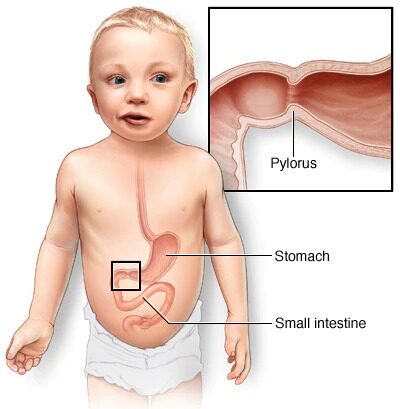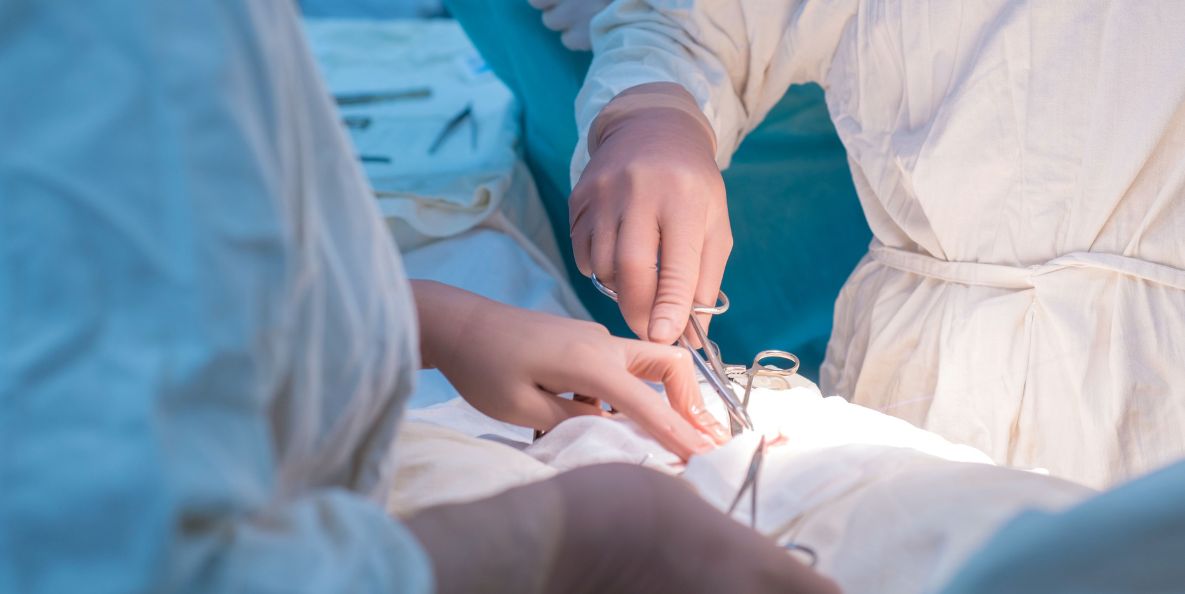Infantile Hypertrophic Pyloric Stenosis (IHPS) is a condition that typically manifests in infants and is characterized by the hypertrophy (enlargement) of the pylorus muscle at the lower end of the stomach. The symptoms of Infantile Hypertrophic Pyloric Stenosis may include:
- Projectile Vomiting: One of the hallmark symptoms is forceful, projectile vomiting. The vomiting is typically non-bilious, meaning it does not contain bile. It often occurs shortly after feeding and may be severe.
- Hunger and Irritability: Infants with IHPS may show signs of hunger shortly after vomiting and may be irritable between feedings. The inability to keep down a sufficient amount of milk can lead to increased hunger.
- Weight Loss: Due to frequent vomiting and inadequate feeding, infants with IHPS may experience weight loss or have difficulty gaining weight at a normal rate.
- Visible Peristalsis: In some cases, visible peristalsis (wave-like contractions) of the stomach may be observed when the infant vomits, especially if the infant is calm and not crying.
- Dehydration: Severe vomiting can lead to dehydration, which may be characterized by decreased urine output, dry mouth, and lethargy.
- Palpable Olive-Shaped Mass: In some cases, a healthcare provider may be able to palpate (feel) an olive-shaped mass in the abdomen. This is the thickened pylorus, which can sometimes be felt during a physical examination.
It’s important to note that symptoms may appear gradually, and the severity can vary. Infantile Hypertrophic Pyloric Stenosis typically becomes noticeable between 3 to 5 weeks of age, and symptoms may worsen over time. If parents or caregivers observe symptoms suggestive of IHPS, it’s crucial to seek prompt medical attention. IHPS is a treatable condition, usually requiring surgical intervention, and early diagnosis and treatment are key to preventing complications and ensuring the well-being of the infant.
Discover comprehensive and compassionate pediatric surgical care with Dr. Bhavesh Doshi, your trusted child surgeon in Mumbai. From routine procedures to specialized interventions, your child’s health is in expert hands.



